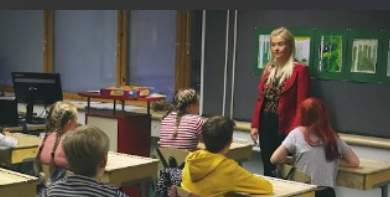Rising Impact of Generative AI in Local Governments: From Streamlining Tasks to Enhancing Services”

While generative artificial intelligence (AI) applications have seen a surge, often considered as novelties or tools for generating humor, the reality is that generative is increasingly finding applications in both private and public sectors. This technology is becoming instrumental in automating tasks, boosting efficiency, and delivering higher-quality services.
AI
Micah Gaudet, Deputy City Manager of Maricopa, Arizona, notes, “Local governments across the United States are increasingly leveraging generative to address a variety of challenges and opportunities unique to their jurisdictions.” Gaudet, who personally explored the world of generative AI, emphasizes the importance of strategic planning in harnessing this technology effectively.
Generative , encompassing applications like ChatGPT, Claude, and Bard, serves to automate tasks, streamline administrative processes, and enhance citizen engagement. Gaudet likens generative to a car’s gas pedal, stating that it is a great tool when directed in the right direction.
Communities are utilizing generative in various ways, as demonstrated by Gaudet in a video on his YouTube channel, Civic Innovation. Examples include evaluating proposals, generating executive summaries, troubleshooting emergency plans, creating social media analyses, and drafting ordinances. Cities like Whitewater, Wisconsin, and Weber County, Utah, have applied generative to rewrite ordinances and draft job descriptions, fostering collaboration and efficiency.
However, the application of generative in local government is not without challenges. Legal constraints, state-specific privacy laws, and concerns about bias and inaccuracies pose potential limitations. Recognizing this, national associations like the National Association of Counties (NACO) have established committees to explore policies and practices regarding the use of generative AI in counties.
Despite the hurdles, Gaudet encourages a thoughtful integration of AI into local government operations. He developed a course, “Unlocking ChatGPT for the Public Sector,” aimed at guiding those interested in utilizing generative I tools for municipal government functions. Gaudet stresses the need for a carefully considered decision-making process tailored to each local government’s specific needs and legal frameworks. The ultimate goal is not just efficiency but an enhancement in the quality of services provided to communities.




